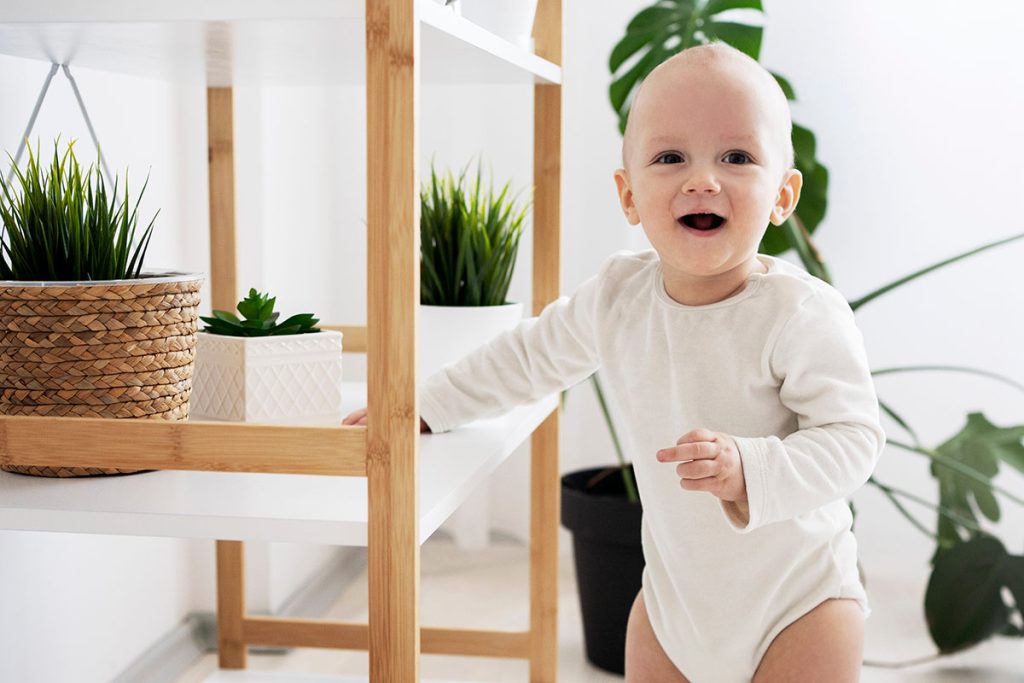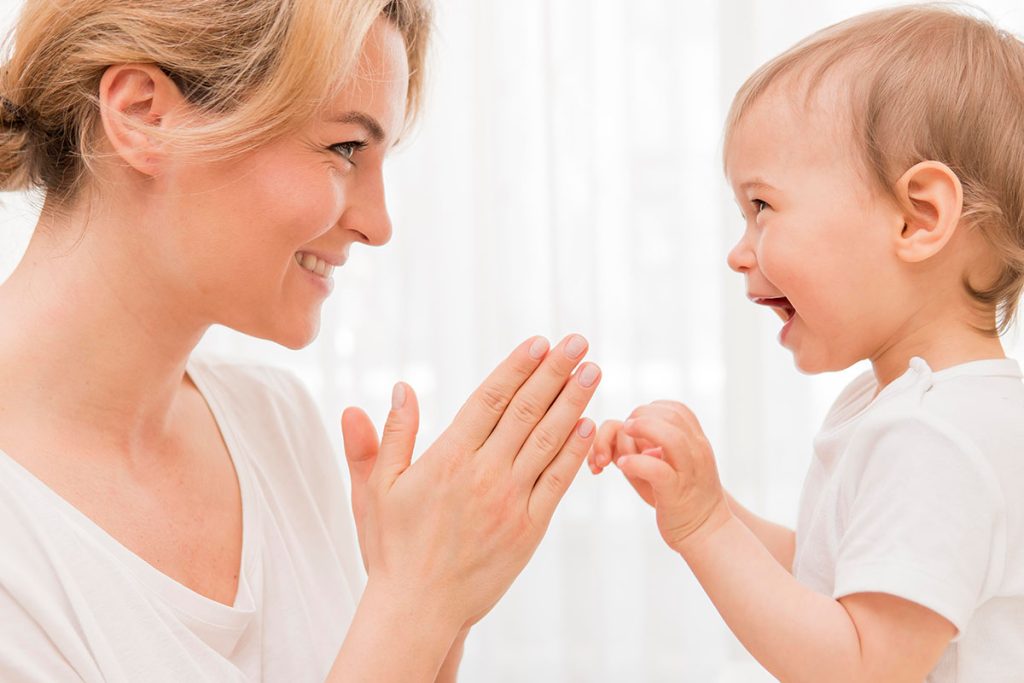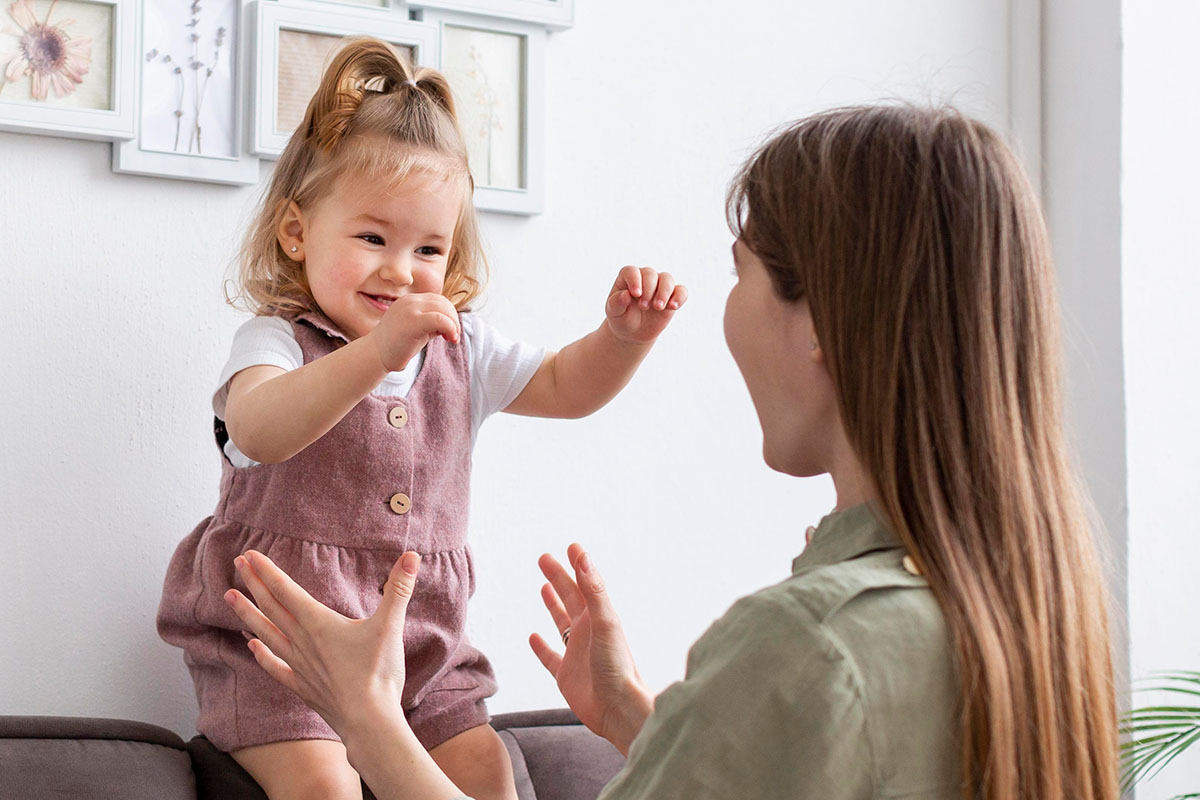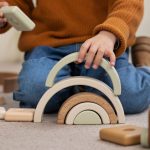As parents, we are the first witnesses to our baby’s emotional development, starting from their first smile to when they start displaying more complex emotions like fear, joy, and frustration. Understanding your baby’s emotional development can help you build a strong, nurturing relationship and foster a healthy mental and emotional environment for them.
Educational materials are not merely tools for learning; they are the keys that unlock the limitless potential within every child, fostering their intellectual, physical, and social bloom.
Zuzu Puzzle

Emotional Development Milestones
Emotional development in babies occurs in stages and each stage is crucial for their overall well-being. The first stage is basic emotional responses, such as crying when hungry or uncomfortable and quieting when soothed. As they grow, babies start recognizing familiar faces and feel secure around them. By 6 months, babies begin to express a range of emotions from joy, anger, sadness to fear.
Importance of Secure Attachment
Secure attachment develops from consistent, loving responses to your baby’s needs. It’s the foundation for emotional development and future relationships. When a baby learns that their needs are met consistently, they develop trust and feel safe to explore the world.
Reading Your Baby’s Emotions
Reading and responding appropriately to your baby’s emotions is critical. Babies communicate through crying, body language, facial expressions, and sounds. Recognizing these cues and responding promptly builds your baby’s confidence and emotional resilience.

Encouraging Emotional Expression
Encouraging your baby to express their emotions, even negative ones, is vital for emotional health. Instead of trying to stop your baby from crying or getting frustrated, comfort them and talk about their feelings.
Modeling Healthy Emotions
Babies are great imitators and learn about emotions by watching you. Show a range of emotions in a healthy way, and your baby will learn to do the same. Remember, it’s okay to show when you are sad or angry, but it’s essential to demonstrate healthy ways of dealing with these emotions.
Importance of Play
Play is a great way to foster emotional development. Through play, babies learn to communicate, problem-solve, and handle emotions. Make sure to include a lot of playtime in your baby’s daily routine.

Fostering Empathy
Empathy is a complex emotion that develops over time. You can foster empathy by modeling empathetic behavior, talking about feelings, and encouraging your baby to care for others.
Encouraging Independence
While it’s essential to meet your baby’s needs, it’s equally crucial to encourage independence. It helps build self-confidence and fosters a sense of self.
Conclusion
In conclusion, emotional development is a crucial aspect of your baby’s overall growth. As a parent, you play a significant role in this process. By understanding your baby’s emotional needs, you can provide them with a nurturing environment that fosters emotional health and resilience.



